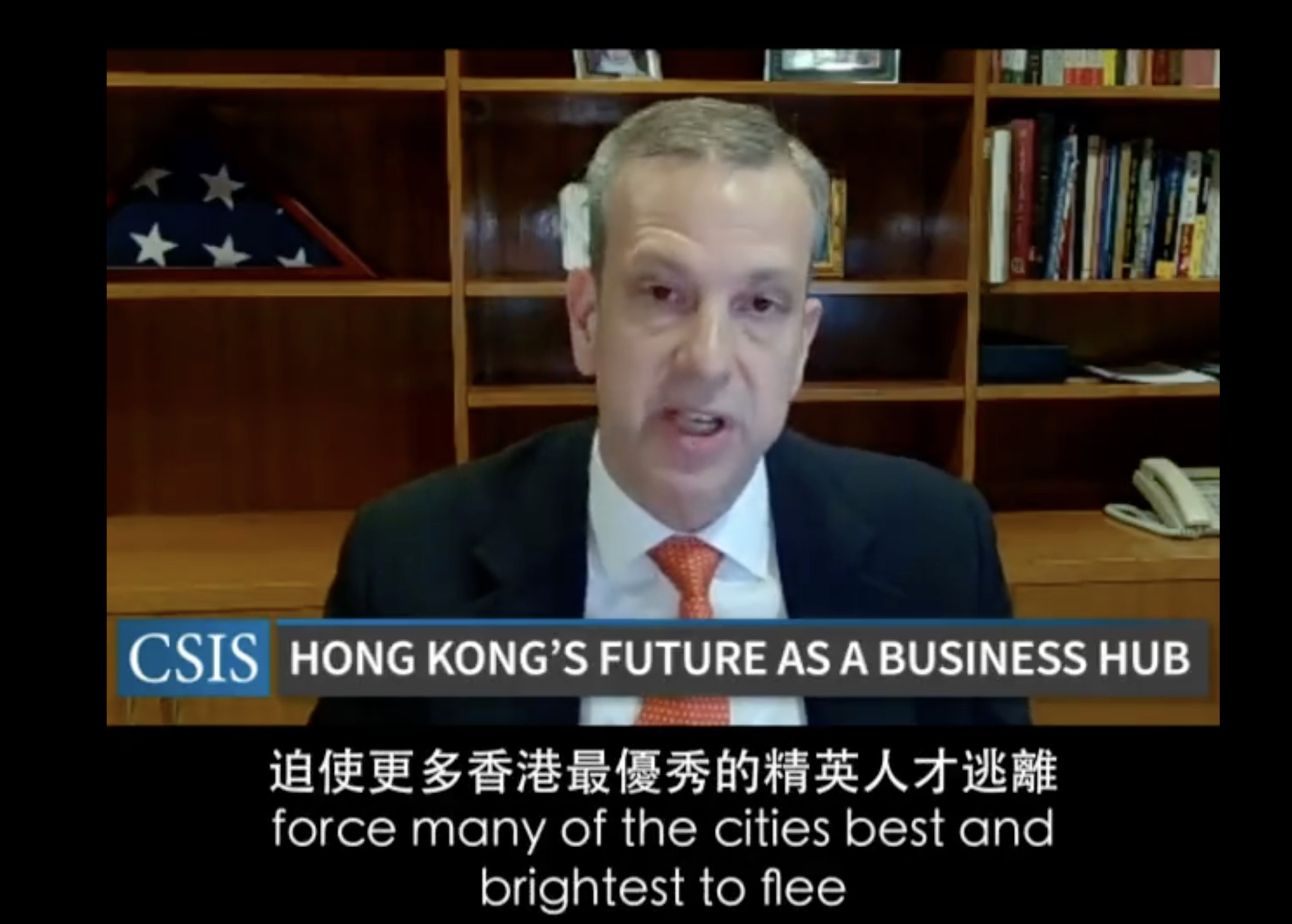
‘Hegemonic bullying’: Hong Kong hits out at US after ‘safe haven’ status extended
- City’s government and Chinese foreign ministry office urge Washington to stop interfering in Hong Kong affairs
- President Joe Biden has extended special treatment for US-based Hongkongers, citing ‘compelling foreign policy reasons’
Hong Kong’s government released a similar statement hours later on Friday, branding the US move as “hegemonic bullying”.
According to the US Department of Homeland Security, there were 3,860 US-based Hongkongers eligible for the DED designation in March 2021.
In a statement on Friday, the Commissioner’s Office of the Chinese Foreign Ministry in Hong Kong said the status extension aimed to stir up chaos and cause disruption in the city by providing refuge for “anti-China forces who have left Hong Kong”. It also said US criticism of law and order and press freedom in Hong Kong was fabricated.
“The Chinese government is resolute to oppose external interference in Hong Kong affairs, to safeguard national sovereignty, security and development interests, to fully and faithfully implement the policy of ‘one country, two systems’, and to protect Hong Kong’s long-term prosperity and stability,” the statement said.
“We strongly urge the US side to stop its wishful thinking of using Hong Kong to contain China and stop interfering in Hong Kong affairs.”
Hong Kong protesters face uncertainty rebuilding lives after jail
The Hong Kong government also slammed Washington in its statement.
“We firmly oppose the US government’s baseless smearing in the so-called memorandum against the Hong Kong national security law,” a Hong Kong government spokesman was quoted as saying.
“The US government clearly stated that its latest actions are in its ‘foreign policy interest’ without any attempt to disguise its motives, demonstrating sinister intentions and hegemonic bullying,” he said.
“The [Hong Kong Special Administrative Region] government urges the US government to immediately stop any acts against the basic norms governing international relations, and immediately stop interfering in the affairs of the HKSAR.”

On Thursday, both the foreign ministry’s office and the Hong Kong government accused US Consul General Gregory May of “maliciously abusing Hong Kong’s national security law and the interpretation by NPC Standing Committee”.

